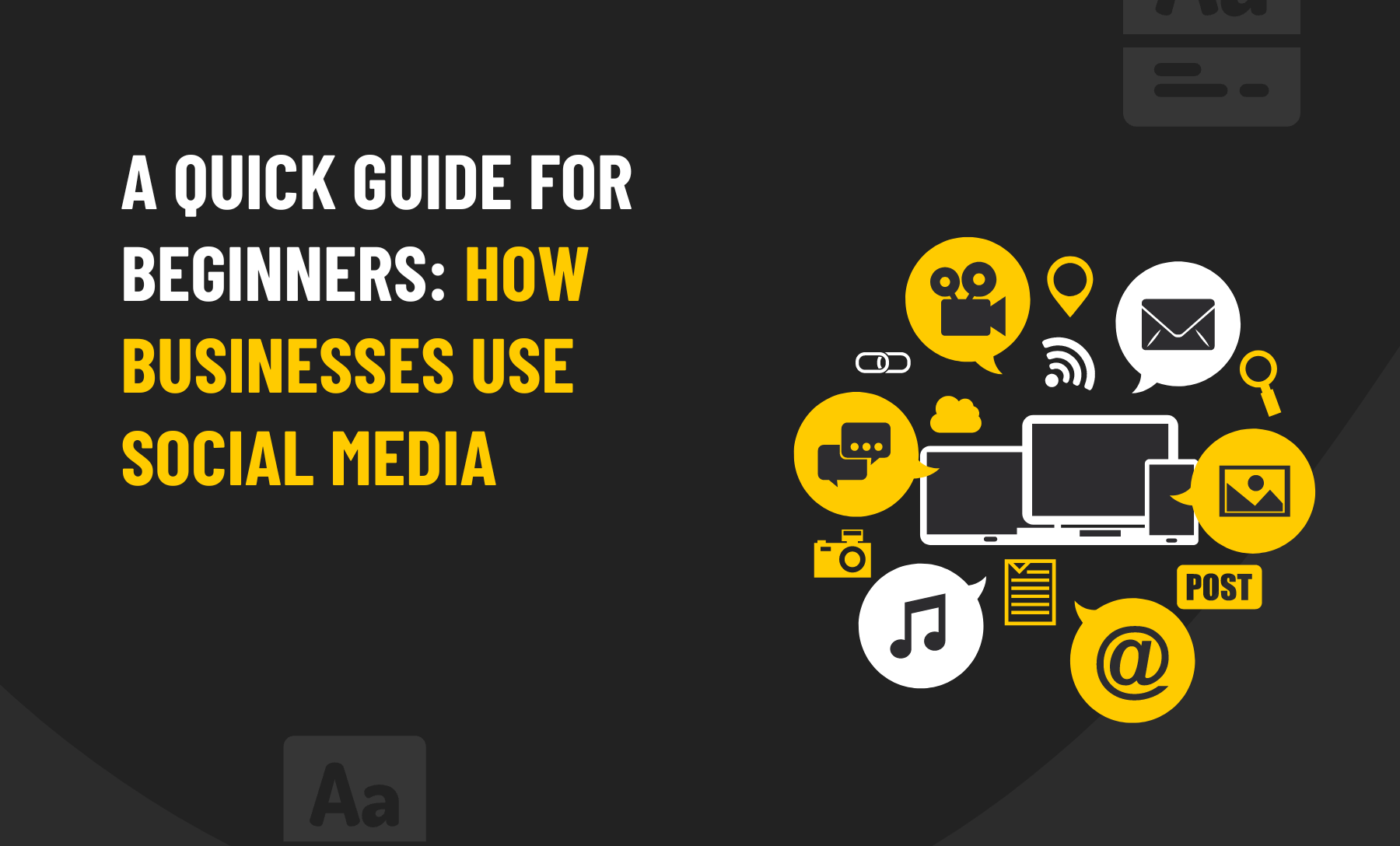Social media is a powerful tool for businesses of all sizes. It can help you reach new customers, engage with existing ones, and boost your bottom line. But how do you get started? In this guide, we’ll discuss the best ways to use social media for business success.
From marketing to customer service and crisis management, we’ll explore how businesses leverage social media for the best results. So grab your phone or laptop – it’s time to learn how to use social media to boost your business!
How To Use Social Media For Your Business

Social media can be a powerful tool for businesses of all sizes. With the right approach, you can build customer relationships, increase brand awareness and reach potential customers globally.
1. Use Social Media For Marketing.
To make the most of this marketing channel, choose the right platform for your goals. Facebook, Twitter and LinkedIn are great options for reaching a broad audience, while Instagram and Pinterest are ideal for visual content.
Once you’ve chosen your platform, create content that resonates with your target audience. To better manage and organize this content, consider using Hootsuite or even Hootsuite alternatives so that you complete every step more professionally. Focus on providing value rather than pushing sales – think tutorials, advice and tips related to your industry or products—additionally, track performance through analytics tools to adjust your approach as needed. Finally, don’t forget to interact with people who comment or share your posts – this will help build relationships and trust with potential customers. With these strategies in place, you’ll be well on your way to success with social media marketing!
2. Use Social Media For Customer Service
Social media is a great tool for providing customer service. Not only can you respond to customer queries quickly and efficiently, but it also allows customers to help each other by commenting on posts, which saves you time and resources.
To ensure your customers get the best experience possible, monitor social media channels regularly and respond promptly when customers comment or message you. Additionally, use hashtags strategically to increase visibility for relevant posts.
Finally, consider creating a dedicated customer service account so users can easily distinguish customer service inquiries from available content. With these strategies in place, you can provide excellent customer service to keep your customers returning for more!
3. Use Social Media For Sales
Social media is an invaluable tool for businesses regarding sales and marketing. With the right strategies, businesses can capitalise on their existing networks and promote their products and services to a wide audience. Start by creating compelling content that interestingly showcases your product or service.
Additionally, consider running targeted campaigns on social media platforms like Facebook, Instagram, and Twitter. This allows you to reach people who are most likely to be interested in your business. Lastly, use social listening tools to track conversations about your brand online; this will help you identify potential customers interested in buying from you. With these strategies in place, you can maximise your sales potential on social media.
4. Use Social Media For Recruiting And Hiring
Social media is a powerful tool for businesses looking to attract and hire talented employees. By using social media platforms like LinkedIn, Facebook, and Twitter, employers can access a broad pool of potential candidates and efficiently sort through them. Additionally, businesses can use their social media channels to recruit talent—a great way to show potential employees what your company values are and how you stand out from the competition.
As an employer or job candidate, it’s important to remember that many companies may screen social media profiles as part of their recruitment process, so ensure your online presence reflects the best version of yourself. With the right strategies, businesses can maximise their recruiting efforts with social media.
5. Use Social Media For Crisis Management
When tragedy strikes, it can be difficult for businesses to know how to use social media to respond. The first step is to monitor your channels and the news closely so you can quickly identify any issues or crises that are relevant to your business. Once identified, you need to decide what action you will take—if any—to address the situation.
Depending on the nature of the crisis, it may be necessary to state your social media channels, whether responding to questions or simply expressing sympathy or support. It’s also important to remember that during a crisis, people turn to social media for information and comfort; therefore, it should be used carefully and responsibly.
Businesses should focus on providing accurate and helpful content while avoiding unnecessary controversy or speculation. Ultimately, by using social media wisely during a crisis, businesses can demonstrate their willingness to help and show empathy for those affected by tragic events.
Social Media Platforms For Businesses
Here’s an overview of the most popular social media platforms and their business tools.
Snapchat
Snapchat is a mobile-only visual social media network well-known for its fading content. Users can share films and photographs, as well as publish content to their public Stories, which are deleted after 24 hours. Chat, messaging, image storage, events, and media content have all been added to the app. Snapchat material can now be saved and uploaded elsewhere.
YouTube
YouTube, owned by Google, is a video-sharing network where users may view, publish, review, share, and comment on content. The website is a big news and entertainment destination.
Many YouTube businesses include a creative, artistic, or instructional component. Because the platform relies largely on creativity, it’s critical to have a professional video editor producing content. But, your company does not require a channel to sell on YouTube; there is a subculture of YouTube influencers that post frequently and often have an enormous following.
TikTok
TikTok, a relatively new hit platform where users produce and share short videos, can be an extremely effective alternative for businesses if used correctly. Because TikTok is largely popular with the notoriously discerning Generation Z, setting the correct tone for business success on the site can be difficult.
To use TikTok for business, you must first understand your brand and how it translates to TikTok. Before you start using TikTok, look at how other businesses are using it. TikTok is an example of an experiential marketing platform that directly engages followers and invites them to participate in a brand experience.
Conclusion
While many people know social media is important to business, only a few can truly understand, implement and leverage this powerful digital tool. So why not learn from award-winning lead generation experts at Pearl Lemon?
How has social media helped your business?
Share with us in the comments below.
FAQ
How do businesses use social media to communicate with customers?
Posting company news, announcements, and milestones and talking about trending topics and industry news are great ways to show customers your present and paying attention. Make yourself visible and engage with your audience by tailoring updates to address their questions or needs.
How do entrepreneurs use social media?
Social media represents a huge opportunity for entrepreneurs to reach new audiences, promote products/services, etc. learn from the successes of others, form meaningful relationships with customers, and so much more.
How do businesses use social media to promote products?
You can also market your products on social media by networking with social media influencers or those with large followings connected to your industry. This helps you expand your brand awareness efforts and showcase your products to a wider customer base.








